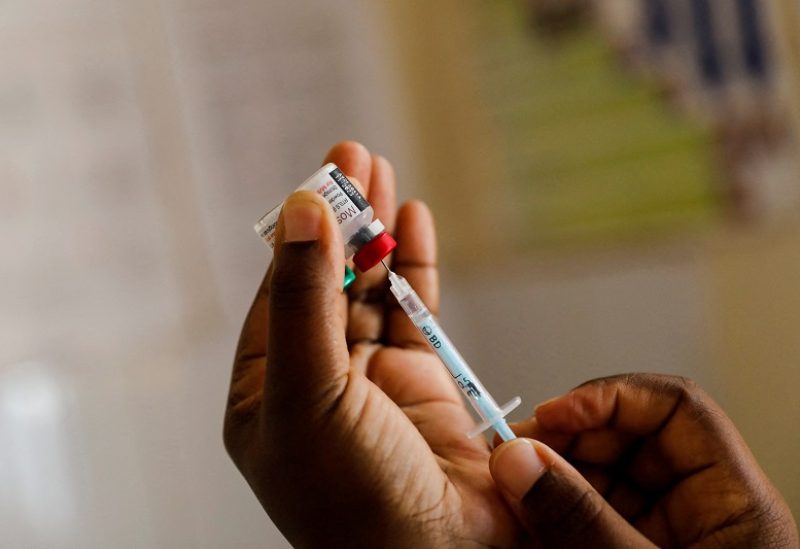
FILE PHOTO: A nurse fills a syringe with malaria vaccine before administering it to an infant at the Lumumba Sub-County hospital in Kisumu, Kenya, July 1, 2022. REUTERS/Baz Ratner/File Photo
A group of Turkish doctors based in the US has developed a vaccine aimed at halting the advancement of breast cancer within the human body.
The research at the University of Pittsburgh Medical Center has been described as a “very important development” by US media.
Atilla Soran, a breast surgical oncologist leading the research, told Anadolu that their vaccine has drawn much attention in the US.
It is currently being tested on 10 volunteers in a clinical trial.
The trial will be expanded to 50 volunteers in the next phase, he added.
Breast cancer is among the most common cancer types among women not only in the US but across the world, including Türkiye, he said.
“We think that this vaccine will prevent the progression of breast cancer in the human body,” Soran said.
“The most important thing that the research group, including myself, has achieved is that a vaccine that has been developed and tested in a laboratory for years is now moving to clinical trial,” the Turkish professor said.
Volunteers will be monitored for the next five years, he said, adding that the vaccine will be approved for commercial use only after it is declared safe to use in larger clinical trials.
Deadliest cancer type after lung cancer
Breast cancer is the second-most deadliest cancer after lung cancer among women, Soran said.
Around 360,000 women are expected to be diagnosed with breast cancer in the US in 2023, he said, adding that only 16% of them will get an early diagnosis.
“If the vaccine enters into force at this very phase, then we think we can prevent the disease from progressing in the bodies of at least a great part of those 360,000 women,” he said.
A total of 24,000 women were diagnosed with the disease in Türkiye in 2020, Soran said, criticizing that the scanning program has not reached the desired level.
It is vital for women over the age of 40 to have a mammogram annually, he advised.
“If you have about 1,000 mammograms, if you have screened 1,000 women, you will have caught one or two very early stage breast cancer,” he added.
“One in a thousand, in fact, when multiplied by millions, it makes a very large figure,” the professor said, also suggesting that with early diagnosis, as with all diseases, costly treatments such as radiation therapy, chemotherapy, immunotherapy and surgery can be avoided.
Testing vaccine on humans, one of most critical stages
He said clinical trials for the vaccine are going on at a slow pace because breast cancer does not pose an acute risk like the COVID-19 pandemic.
He noted that breast cancer research began in the 80s and 90s.
“Nearly 10% of the breast cancer cases are caused by genes, and women with those genes also have an 80% chance to be diagnosed with ovarian or breast cancer in their lifetime,” he warned.
Going for frequent check-ups is crucial for all women, he underlined.
Taking a walk for half an hour everyday also reduces the risk of getting breast cancer “to a great extent,” he said, adding that women should also be careful about the length-weight proportion of their bodies.
Those who give birth before 35 and who do not drink alcohol are less likely to be diagnosed with breast cancer, he said.
Breast cancer would no longer be a deadly disease for you if you are diagnosed early, he noted.
1st person to be titled professor at Pittsburgh University’s Mammaplasty Department
Upon being invited to the US in 1997 to work as an expert, Soran had become the very first person, who earned professorship in 2004 at the Pittsburgh University’s Mammaplasty Department.
In 2007, he called his research shedding new light on advanced breast cancer the “Turkish Study.”
It is still recognized by the same name world over.
The Turkish doctor continues to maintain strong ties with Türkiye.